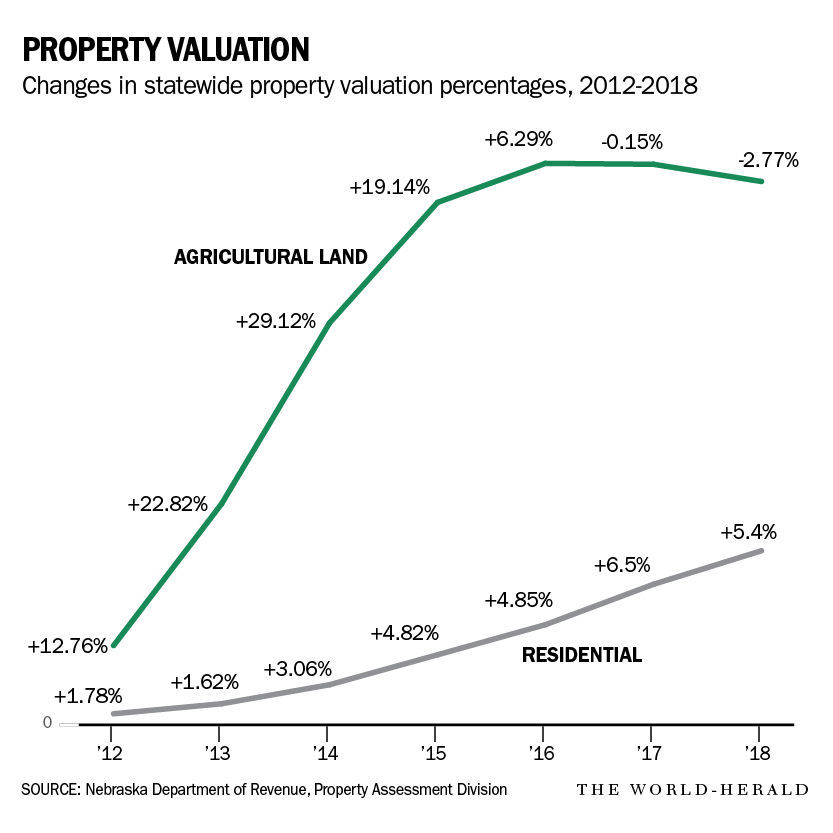Farmland values in Nebraska declined for the second straight year after a long run of increases.
The Nebraska Department of Revenue’s property assessment division issued a report Friday showing that agricultural land values dropped 2.77 percent. They fell 0.15 percent last year, the first decline in at least 25 years. Meanwhile, residential property values this year increased 5.4 percent, and commercial property values went up 6.94 percent.
Experts said farmland and ranchland property value chases the decline in the prices of corn, soybeans, beef and other commodities over the past few years.
“It’s a reflection of the farm economy right now,” said Jay Rempe, an agricultural economist with the Nebraska Farm Bureau.
Whether a drop in agricultural land value is good news or bad depends on who’s talking.
“I don’t think it’s necessarily a bad thing,” said Eric Thompson, director of the University of Nebraska-Lincoln’s Bureau of Business Research. Farmland values “were at unusually high levels early in this decade,” Thompson said. “And so I see this as a rebalancing.”
But State Sen. Joni Albrecht of Thurston said a 2.77 percent drop in agricultural land value would only modestly affect farm and ranch property taxes. Those shot up some 235 percent over a 10-year stretch in her legislative district in eastern Nebraska, she said.
“Every little bit helps, but I don’t know how you bring it down” enough, Albrecht said of agricultural property tax.
Taylor Gage, Gov. Pete Ricketts’ spokesman, said a decline in agricultural land valuations follows the market and land prices.
“Last year, Gov. Ricketts proposed reforming ag land valuations to lower property taxes on farmers and ranchers,” Gage said. “The governor has continued to fight for property tax relief in spite of the failure of senators to adopt his proposal.”
Farmer Craig Weber, who lives north of Kearney, said a modest drop in farmland values won’t bring profound relief in property taxes.
“It’s going to take a lot of 2.7 percents to get our property taxes where they’re a little more reasonable,” Weber said.
But he said a drop in farmland value can be good or bad, depending on what a farmer intends to do. If he’s interested in buying farmland, a drop in land value is good. “If I’m interested in selling, it’s a negative, of course.”
The biggest drops in farmland values hit Hitchcock County (down 10.39 percent), Washington County (down 9.75 percent) and Hayes County (down 9.72 percent).
Statewide, property values in general rose 2.04 percent, producing an increase in valuation of about $4.6 billion.
Property value change is based on total property in each county, and individual property may not change by the same percentage.
Weber said he intends to stay optimistic about his industry. “Things are cyclical in agriculture, and I think we’ll be headed back to more profitable times.”





